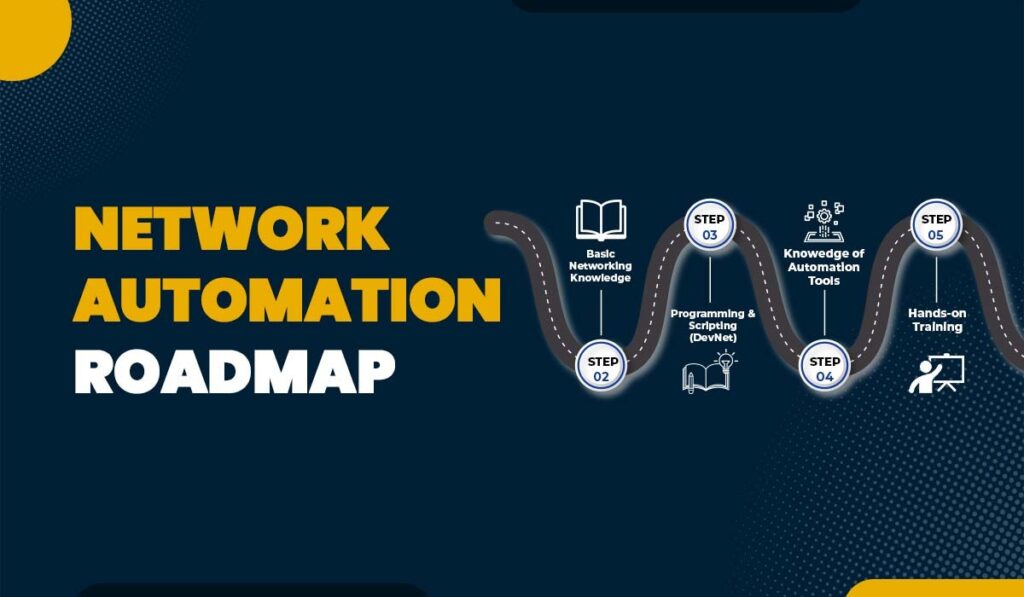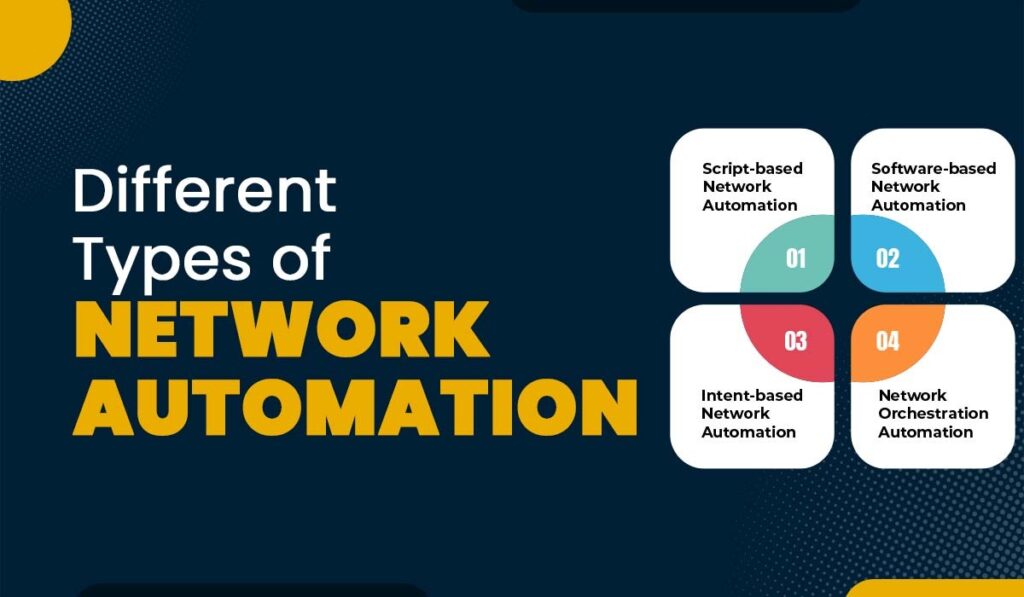Introduction
Microsoft Azure is one of the top public cloud providers today, and most organizations consider it to be the fastest and steadily growing. With many companies switching to Azure, the demand for skilled professionals is increasing day by day. This is why students are beginning to show interest towards Azure certification to demonstrate and validate their knowledge about specific cloud roles.
Earning Azure certifications can help you boost your career prospects and excel in the field of cloud computing. Therefore, in this blog, we will discuss the Microsoft Azure certification path for 2025 in detail. It will help to choose the best certification for your needs and provide a step-by-step roadmap to success. However, to gain a well-rounded understanding and prepare for multiple Azure certifications efficiently, consider enrolling in Microsoft Azure combo training.
Before getting into the blog, let us understand what exactly azure certifications are.
What are Azure Certifications?
Azure Certifications are credentials for professionals who want to demonstrate their expertise in various aspects of Microsoft Azure. In other words, it validates your expertise in working with Microsoft’s cloud computing platform i.e. Azure. These certifications are designed for IT professionals, developers, and data and AI experts.
Earning an Azure certification helps you design, implement, and manage cloud-based solutions using Azure and helps you secure a job or grow your career in the field. There are different levels of Azure certification available, providing different experience levels and expertise within the Azure cloud environment.
Now, let’s understand why Azure certification is so important.
Why Azure certification?
Here are some reasons why Azure certification is important:
Wide range of job opportunities: As we already know, cloud computing is a rapidly growing field, and skilled Azure professionals are in high demand. Azure certification helps you qualify for a wide range of jobs in different industries.
Career advancement: Azure certifications validate your skills and knowledge in cloud computing, making you a more attractive candidate for employers. This can be particularly helpful if you want to start a cloud computing career or move into a more senior role.
Better skills and knowledge: Even if you’re not currently looking for a new job, getting an Azure certification can help you improve your skills and knowledge of cloud computing. This can make you more effective in your current role.
Demonstrated commitment to Azure: Getting certified shows that you are serious about learning and using Microsoft Azure cloud services.
Now it’s time to understand the levels of Azure certifications.
Azure Certifications Levels
Microsoft has organized its certifications into four different levels from beginner to expert. All certifications provided by Microsoft fall under these Azure certification path levels.
Fundamental Certification: Fundamental Certification is for beginners who have started their journey in learning azure concepts. Moreover, people with non-technical backgrounds can start their journey in the cloud with these certifications.

Associate Certification: If you are already familiar with Azure, you can list these certifications on your resume.

Expert Certification: With prior experience, deep understanding, and associate-level knowledge in Azure, you can achieve Expert Certification.

Specialty Certifications: If you want to specialize in a specific few roles of Azure, such as Azure for SAP workloads and Azure IoT Developer, these certifications are options for you. It is recommended to know the fundamentals of Azure to obtain these certifications.
After discussing the levels, now let’s understand the Microsoft Azure certification path.
Microsoft Azure Certification Path
As we discussed, there are many Azure certifications available, so it is hard to find out which one suits your needs. The best Azure Certification path depends on your career goals and current skillset. This certification path will help you choose the best certification for yourself.
Choosing the right certification is the first step on your journey toward building new skills and potentially advancing your career. So, here is the roadmap of some of the top Azure certifications that opens a door of many career opportunities.
Architect
The Azure certification path for Architect appears to be as follows:
Microsoft Azure Fundamentals (AZ-900): This is the foundation for all Azure certifications. It validates your basic understanding of cloud services and Azure in general. Regardless of your chosen specialty (Architect in this case), AZ-900 is a mandatory starting point.
| Certification Name | Microsoft Azure Fundamentals Certification |
| Exam Code | AZ 900 |
| Exam Cost | USD 99 + Tax |
| Exam Language | English. Japanese. Chinese (Simplified) |
Microsoft Azure Administrator (AZ-104): It is not strictly required, this exam is highly recommended for aspiring Architects. It validates your skills in managing and deploying Azure resources, which is a crucial skill for any architect designing solutions on the platform.
| Certification Name | Microsoft Azure Administrator |
| Exam Code | AZ 104 |
| Exam Cost | USD 165 (Depends on country or region in which the exam is proctored) |
| Exam Language | English, Chinese (Simplified), Korean, Japanese, French, Spanish, German, Portuguese (Brazil), Russian, Arabic (Saudi Arabia), Chinese (Traditional), Italian, Indonesian (Indonesia) |
Developing Solutions for Microsoft Azure (AZ-204): It focuses on developing solutions using Azure services. Understanding how these services work from a developer’s perspective gives you a well-rounded skillset for designing effective architectures. It is also not strictly required; this exam is highly recommended for aspiring Architects.
| Certification Name | Azure Developer Associate |
| Exam Code | AZ 204 |
| Exam Cost | USD 165 (Depends on country or region in which the exam is proctored) |
| Exam Language | English, Chinese (Simplified), Korean, Japanese, French, Spanish, German, Portuguese (Brazil), Russian, Arabic (Saudi Arabia), Chinese (Traditional), Italian, Indonesian (Indonesia) |
Microsoft Azure Security Fundamentals (AZ-500): Security is a top concern in cloud solutions. While not mandatory for the Architect certification, AZ-500 demonstrates your understanding of security principles and best practices for securing Azure resources. This can be a valuable addition to your architect skills.
| Certification Name | Azure Security Engineer Associate |
| Exam Code | AZ 500 |
| Exam Cost | USD 165 (Depends on country or region in which the exam is proctored) |
| Exam Language | English, Chinese (Simplified), Korean, Japanese, French, Spanish, German, Portuguese (Brazil), Russian, Arabic (Saudi Arabia), Chinese (Traditional), Italian, Indonesian (Indonesia) |
Microsoft Certified Solutions Architect (AZ-305): The AZ-305 Certification validates your ability to design complex Azure solutions. It covers aspects like identity management, data storage, business continuity, and infrastructure. Earning this certification demonstrates expertise in crafting secure and reliable Azure solutions.
| Certification Name | Designing Microsoft Azure Infrastructure Solutions |
| Exam Code | AZ 305 |
| Exam Cost | USD 165 (Depends on country or region in which the exam is proctored) |
| Exam Language | English, Chinese (Simplified), Korean, Japanese, French, Spanish, German, Portuguese (Brazil), Russian, Arabic (Saudi Arabia), Chinese (Traditional), Italian, Indonesian (Indonesia) |
Note: You can directly go for AZ-305 Certification, but If you go for AZ-305 after completion of AZ-104 then you will get an Expert Certification.
DevOps
The Azure certification path of DevOps appears to be as follows:
Microsoft Azure Fundamentals (AZ-900): This is the foundation exam that covers the basics of Azure, including cloud concepts, Azure services, security, Azure Functions, and architecture. It’s a prerequisite for all other Azure certifications.
Microsoft Azure Administrator (AZ-104): This exam focuses on the administration of Azure resources, including deployment, management, and monitoring of Azure resources.
Developing Solutions for Microsoft Azure (AZ-204): This exam is geared towards developers who want to build cloud-based solutions on Azure. It covers topics like Azure compute, storage, and security.
Microsoft Azure Security Technologies (AZ-500): While not compulsory, this exam is recommended for DevOps professionals who want to specialize in Azure security. It covers topics like Azure security architecture, threat protection, and identity and access management.
Designing and Implementing Microsoft DevOps Solutions (AZ-400): This exam is specifically designed for DevOps professionals who want to design and implement DevOps practices on Azure. It covers topics like Azure DevOps, continuous integration, continuous delivery, and continuous monitoring.
| Certification Name | Designing and Implementing Microsoft DevOps Solutions |
| Exam Code | AZ 400 |
| Exam Cost | USD 165 (Depends on country or region in which the exam is proctored) |
| Exam Language | English, Chinese (Simplified), Korean, Japanese, French, Spanish, German, Portuguese (Brazil), Russian, Arabic (Saudi Arabia), Chinese (Traditional), Italian, Indonesian (Indonesia) |
Developer
The Azure certification path of Developer appears to be as follows:
Microsoft Azure Fundamentals (AZ-900): This foundational exam validates your basic understanding of cloud services, Azure core services, and Azure pricing. It serves as a prerequisite for other Azure certifications.
Microsoft Azure Administrator (AZ-104): This exam validates your expertise in managing Azure subscriptions, implementing Azure Active Directory, creating and managing VMs, configuring storage accounts, and deploying web apps and cloud services. While not mandatory for developers, it provides valuable knowledge for those who want to build and manage their own Azure infrastructure.
Developing Solutions for Microsoft Azure (AZ-204): This exam assesses your ability to develop, deploy, and manage cloud solutions using Azure services. It’s geared towards developers with experience in building and deploying applications to the cloud.
Microsoft Azure Security Fundamentals (AZ-500): This exam is recommended as it validates your understanding of security concepts and best practices in Azure. It covers securing identities, access control, data security, network security, and security hygiene. Earning this certification demonstrates your commitment to building secure cloud solutions.
Designing and Implementing Microsoft DevOps Solutions (AZ-400): This is an optional exam that delves into Azure DevOps services and how to use them to implement DevOps practices for continuous integration, continuous delivery, and infrastructure as code. It’s suited for experienced DevOps professionals who want to validate their expertise in designing and implementing Azure DevOps solutions.
Security
The Azure certification path of Security appears to be as follows:
Microsoft Azure Fundamentals (AZ-900): This is the essential starting point for anyone new to Azure. It covers basic cloud concepts, Azure services, and security principles.
Microsoft Azure Administrator (AZ-104): While not strictly a security certification, AZ-104 covers essential security-related topics for managing Azure resources. You’ll learn about security best practices for identity, networking, and resource management.
Developing Solutions for Microsoft Azure (AZ-204): This certification focuses on development aspects of Azure, but it includes some security considerations for building secure applications in the cloud.
Microsoft Certified: Azure Security Engineer Associate (AZ-500): This is the core security certification for Azure. It validates your ability to implement security controls, manage identity and access, secure infrastructure, and detect threats.
Artificial Intelligence
The Azure certification path of Artificial Intelligence appears to be as follows:
Microsoft Azure Fundamentals (AZ-900): This exam lays the groundwork for understanding cloud concepts and Azure services. It’s recommended for anyone pursuing any Azure certification, including AI.
Microsoft Azure AI Fundamentals (AI-900): This is the essential first step in AI specialization. It validates your foundational knowledge of AI concepts, machine learning, and how they relate to Microsoft Azure services.
| Certification Name | Azure AI Fundamentals |
| Exam Code | AI 900 |
| Exam Cost | USD 99 (Depends on country or region in which the exam is proctored) |
| Exam Language | English, Japanese, Chinese (Simplified), Korean, German, French, Spanish, Portuguese (Brazil), Russian, Indonesian (Indonesia), Arabic (Saudi Arabia), Chinese (Traditional), Italian |
Designing and Implementing Microsoft Azure AI Solutions (AI-102): This exam builds upon the fundamentals. It assesses your ability to design, implement, and manage AI solutions on Azure. You’ll need strong technical skills to handle tasks like data preparation, model training, deployment, and monitoring.
| Certification Name | Azure AI Engineer Associate |
| Exam Code | AI 102 |
| Exam Cost | USD 165 (Depends on country or region in which the exam is proctored) |
| Exam Language | English, Japanese, Chinese (Simplified), Korean, German, French, Spanish, Portuguese (Brazil), Arabic (Saudi Arabia), Russian, Chinese (Traditional), Italian, Indonesian (Indonesia) |
Microsoft Azure Administrator Associate (AZ-104): This certification, while not mandatory for the AI path, is highly recommended. It equips you with the skills to manage and administer Azure infrastructure, which is crucial for deploying and maintaining AI solutions.
Data Science
The Azure certification path of Data Science appears to be as follows:
Azure Fundamentals (AZ-900): This foundational exam isn’t mandatory but is strongly recommended. It assesses your understanding of core Azure cloud concepts like services, deployment models, and security.
Azure Data Fundamentals (DP-900): This essential certification focuses on the fundamentals of working with data in Azure. It covers data storage solutions, data processing services, and analytics tools offered by Microsoft Azure.
| Certification Name | Azure Data Fundamentals |
| Exam Code | DP 900 |
| Exam Cost | USD 99 (Depends on country or region in which the exam is proctored) |
| Exam Language | English, Japanese, Chinese (Simplified), Korean, German, French, Spanish, Portuguese (Brazil), Arabic (Saudi Arabia), Russian, Chinese (Traditional), Italian, Indonesian (Indonesia) |
Azure Administrator Associate (AZ-104): While not compulsory for data science, this certification validates your ability to manage and administer Azure cloud resources. This can be beneficial if you plan to manage your own data science workflows on Azure.
Azure Data Scientist Associate (DP-100): This core exam is mandatory for aspiring data scientists on Azure. It validates your expertise in designing, implementing, and managing machine learning workloads on the Azure platform.
| Certification Name | Azure Data Scientist Associate |
| Exam Code | DP 100 |
| Exam Cost | USD 165 (Depends on country or region in which the exam is proctored) |
| Exam Language | English, Japanese, Chinese (Simplified), Korean, German, French, Spanish, Portuguese (Brazil), Arabic (Saudi Arabia), Russian, Chinese (Traditional), Italian, Indonesian (Indonesia) |
Now we have discussed the various Microsoft Azure Certification Paths you can follow to succeed in the cloud computing field.
Frequently Asked Questions
Q1 – Which authentication is best in Azure?
Here are some of the best Azure certification courses –
- Azure Fundamentals (AZ-900)
- Azure Data Fundamentals (DP-900)
- Azure AI Fundamentals (AI-900)
- Azure Administrator certification (AZ-104)
- Azure Network Engineer Associate (AZ-700)
- Azure Security Engineer Associate (AZ-500)
- Azure Database Administrator Associate (DP-300)
Q2 – Is AZ-900 for beginners?
The Microsoft Azure AZ-900 certification is an entry pass into the world of cloud computing. It provides a basic understanding of Azure services and concepts, making it an excellent choice for beginners.
Q3 – Is Azure in high demand?
Yes, the demand for Azure is very high due to which the demand for professionals skilled in cloud computing and azure development is increasing.
Q4 – What comes after AZ 104 certification?
After passing the certification exam for Azure AZ-104, you will become a Microsoft Certified Azure Administrator Associate and receive the Azure Administrator Associate badge.
Conclusion
In this blog, we have discussed a complete Azure certification path for IT professionals to validate their cloud expertise and improve their career opportunities. Microsoft Azure offers different cloud certifications for different cloud roles. We have listed Microsoft Azure certification paths for the top certifications that most of the candidates want to obtain. Whether you’re starting with the basics or looking for progressive specialization, Azure certifications cover a wide range of skills and roles, including cloud administration, development, security, data engineering, AI, and solutions architecture.





